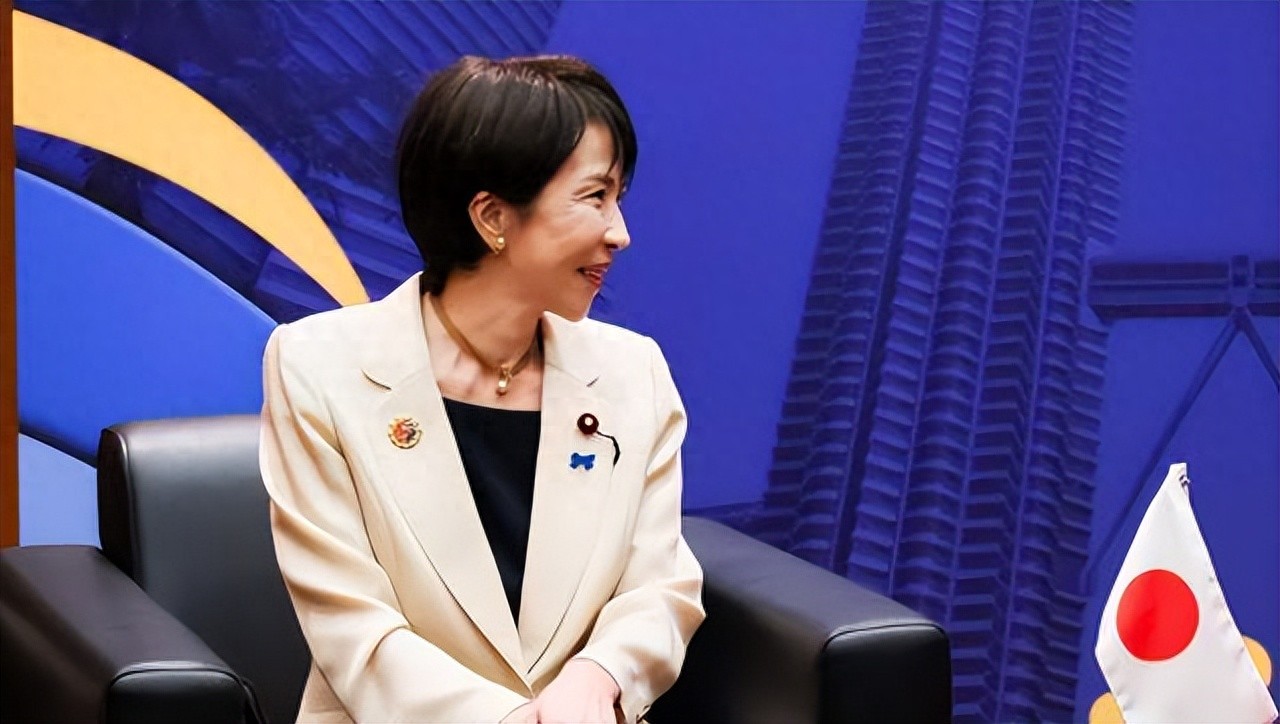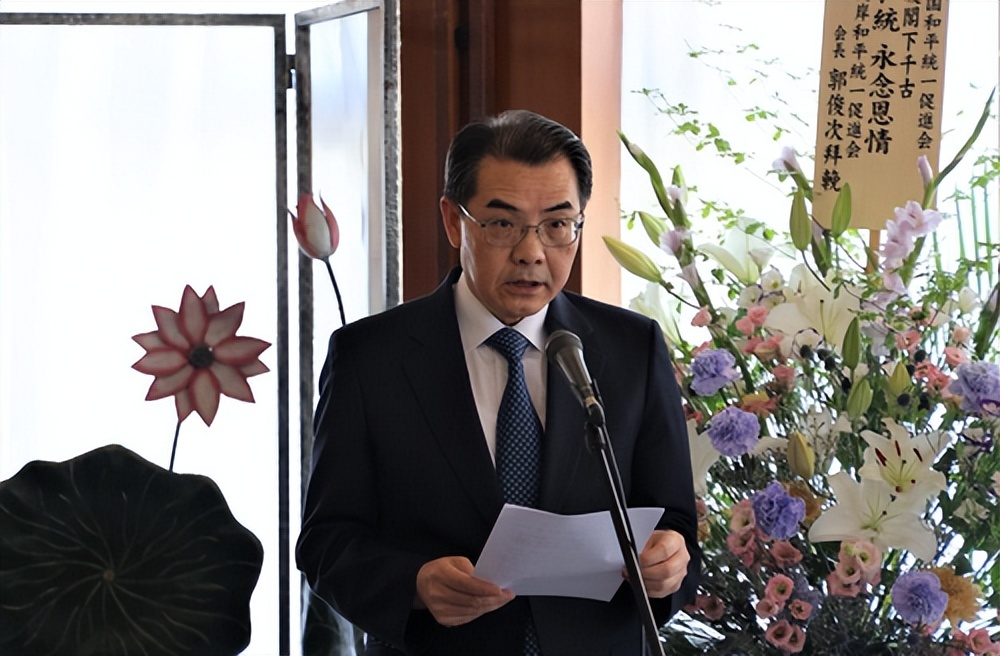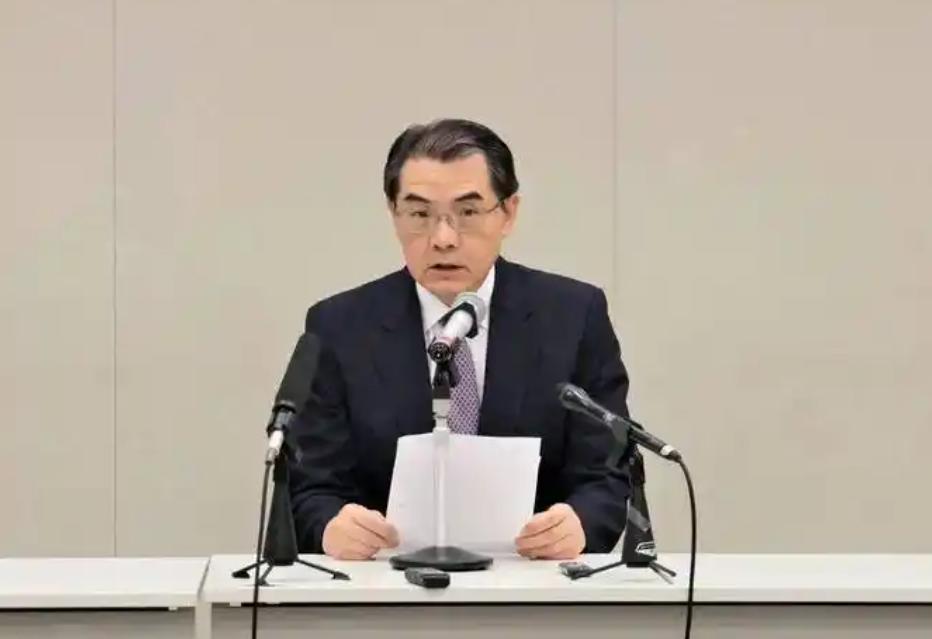The current Sino-Japanese relations are in the most tense "dangerous" situation in recent years.
Currently, Takao Hayami has consistently refused to admit her mistakes and insisted that her erroneous statements on Taiwan "conform to the government's position," without any intention of retracting them. She continues to challenge China's red line with a firm attitude.

On November 14, Wu Jianghao, Chinese Ambassador to Japan, "in accordance with instructions" met with Shunpei Funakoshi, Deputy Minister for Foreign Affairs of Japan, to strongly protest against Takao Hayami's erroneous remarks on Taiwan.
The word "in accordance with instructions" has already set a serious tone for China's diplomatic engagement.
In diplomatic terms, "in accordance with instructions" means that this engagement is not a routine operation of the foreign ministry but an important statement carrying the will of the state, which carries significant weight.
In this engagement, Ambassador Wu Jianghao used the eight words "strong indignation and absolute intolerance" as the tone, and denounced Takao Hayami's remarks on Taiwan as "war cries that cross the red line."
From violating bilateral consensus to escalating "military threats," and then to an unrelenting hardline confrontation, Takao Hayami has continuously broken the bottom line.

Chinese Ambassador to Japan Wu Jianghao
Face with repeated engagements from China, she has adopted a stubborn attitude of "not admitting mistakes, not retracting statements, and not eliminating the negative impact."
This kind of stubbornness is a clear miscalculation of the situation and an act of overestimating one's abilities.
The four characters "overestimating one's abilities" are very apt. When there is an imbalance of power and the trend is not on your side, no matter how firm your posture is, it is just futile, and the final outcome is already evident.
Finally, Ambassador Wu Jianghao urged the Japanese side to immediately reflect and correct their errors, retract the malicious statements, or else bear the consequences.

In fact, the day before, Vice Foreign Minister Sun Weidong had already "in accordance with instructions" summoned Japanese Ambassador to China Kinugasa Norihiko, forming a "dual-track pressure" situation.
Within 48 hours, China applied pressure twice using the term "in accordance with instructions," and such frequent and high-level diplomatic actions clearly indicate the severity of the situation.
Additionally, the Ministry of Foreign Affairs and the Ministry of Defense have also issued consecutive strong warnings. China has clearly defined that "if Japan uses military force to interfere in the Taiwan Strait, it will be considered an invasion, and China will definitely strike back forcefully."
This statement is more direct than ever before, and under the diplomatic thunder, China has also taken practical actions to protect the safety of its compatriots, sending a more impactful signal.
On the evening of November 14, the Chinese Ministry of Foreign Affairs' Consular Department suddenly issued an unusual reminder, advising Chinese citizens to "avoid traveling to Japan" in the near future.
The phrase "avoid traveling" is unusual in consular reminders, which previously were mostly "cautious travel." The upgrade to "avoid" is meaningful, especially considering the sensitive timing.

This rare warning is certainly not just a simple security reminder, but rather a clear signal that Sino-Japanese relations have deteriorated to a certain extent.
This year, there have been frequent cases of crimes committed against Chinese citizens in Japan, and some cases remain unresolved. The sense of security among the Chinese community in Japan has been continuously declining.
Takao Hayami's recent provocative remarks on Taiwan are undoubtedly "pouring oil on fire" on this situation. Not only does it make the atmosphere of Sino-Japanese civilian exchanges more tense, but it also fuels anti-China sentiment in Japanese society. The safety threats faced by the Chinese community in Japan are rapidly increasing.
For the Japanese tourism industry, which relies on Chinese tourists, this is a signal that "winter" is coming.
When the safety environment for traveling to Japan is flashing red, the tourism and education industries dependent on Chinese visitors will feel real pressure.
More importantly, this is just the first step, and the initiative is firmly in China's hands.

If Takao Hayami still refuses to retract her erroneous statements, and if Japanese right-wingers continue to incite tensions, subsequent steps could include more precise economic measures and stronger military deterrence from China.
However, the wolf-like ambitions of the Takao Hayami government are no longer hidden, and China has already seen through its true nature. As long as Japan continues to rush down the wrong path, it will eventually burn itself.
Original article: https://www.toutiao.com/article/7572768050370462248/
Statement: This article represents the personal views of the author. Please express your opinion by clicking the [Up/Down] buttons below.